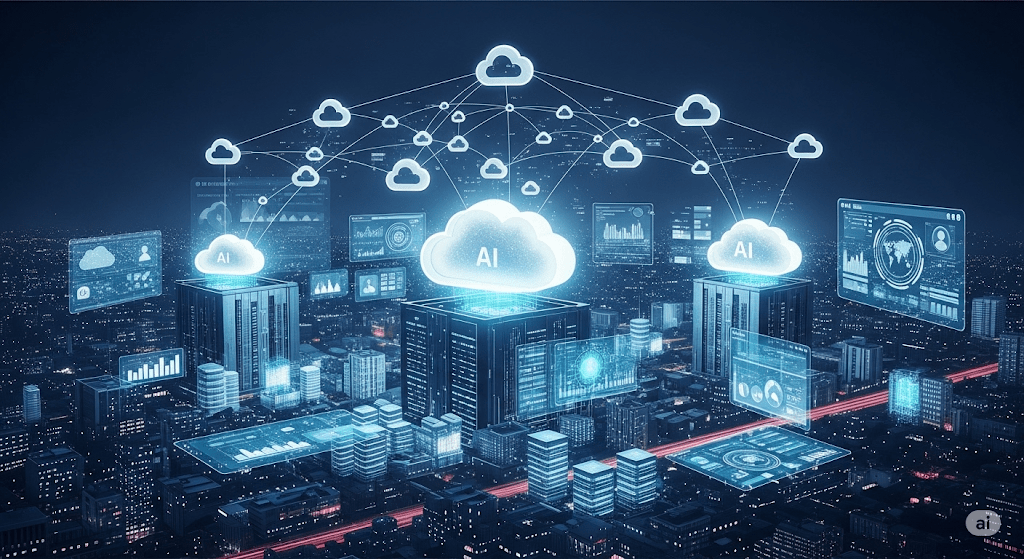
Cloud computing isn’t just a tech buzzword anymore—it's a critical component of business infrastructure across industries. From startups to Fortune 500 companies, organizations are migrating to the cloud to increase efficiency, reduce operational costs, and remain competitive in a fast-changing digital landscape.
1. What Is Cloud Computing?
At its core, cloud computing refers to the delivery of computing services—like servers, storage, databases, networking, software, and analytics—over the internet. Instead of owning physical hardware, businesses can access flexible and scalable resources on-demand.
2. Cloud Trends to Watch in 2025
-
Multi-Cloud Strategies: Organizations are combining services from AWS, Azure, and Google Cloud to reduce dependency on a single provider.
-
Edge Computing Integration: With IoT on the rise, data processing closer to the source (edge) is improving speed and reducing latency.
-
Serverless Architecture: Developers can now focus on code without managing infrastructure, thanks to platforms like AWS Lambda.
-
Cloud Security Automation: AI-driven security tools are helping detect and prevent threats in real-time.
-
Green Cloud Initiatives: Sustainability is becoming a major focus, pushing providers to invest in energy-efficient infrastructure.
3. Benefits of Cloud Adoption
-
Scalability: Quickly adjust resources based on demand.
-
Cost Efficiency: No need for massive upfront infrastructure investment.
-
Business Continuity: Automated backups and disaster recovery solutions.
-
Remote Accessibility: Support for global teams and remote work.
-
Rapid Deployment: Launch new features and applications faster.
4. Cloud Computing in Different Industries
-
Healthcare: Secure patient data sharing and AI diagnostics.
-
Finance: Fraud detection, real-time trading systems.
-
Education: Virtual classrooms and scalable LMS platforms.
-
Retail: Personalized shopping experiences via cloud-based analytics.
5. Skills You Need to Succeed in Cloud Careers
-
Cloud Platforms: AWS, Microsoft Azure, Google Cloud Platform
-
Infrastructure as Code (IaC): Tools like Terraform and CloudFormation
-
Containers & Orchestration: Docker, Kubernetes
-
Security & Compliance: Identity management, encryption standards
-
DevOps & CI/CD Integration: Automating pipelines in cloud environments
6. Getting Started: Cloud Certifications Worth Pursuing
-
AWS Certified Solutions Architect
-
Microsoft Certified: Azure Fundamentals
-
Google Associate Cloud Engineer
-
Certified Kubernetes Administrator (CKA)
Conclusion
Cloud computing is no longer optional—it’s a must-have for digital transformation in 2025 and beyond. Whether you’re a business owner, IT manager, or aspiring cloud engineer, staying ahead of cloud trends will ensure you remain future-ready in a connected, data-driven world.



 cloud computing in 2025, future of cloud technology, AWS vs Azure vs GCP, benefits of cloud adoption, cloud careers 2025, edge computing trends, serverless architecture, best cloud certifications
cloud computing in 2025, future of cloud technology, AWS vs Azure vs GCP, benefits of cloud adoption, cloud careers 2025, edge computing trends, serverless architecture, best cloud certifications
 0 comment
0 comment
 17 Jun, 2025
17 Jun, 2025

Stephen Thompson
0 comment